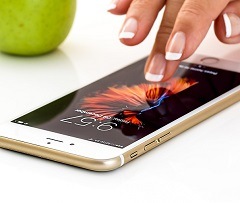 A new smartphone application called FAST.AI (Neuronics Medical) may help people who are having a stroke—or their family and caregivers—to recognise common stroke symptoms in real time, prompting them to seek medical care and receive urgent treatment.
A new smartphone application called FAST.AI (Neuronics Medical) may help people who are having a stroke—or their family and caregivers—to recognise common stroke symptoms in real time, prompting them to seek medical care and receive urgent treatment.
FAST.AI is a fully automated smartphone application for the detection of severe stroke. It uses machine learning algorithms to recognise facial asymmetry, arm weakness and speech changes, all of which are common stroke symptoms. The application uses a facial video of the patient to examine 68 facial landmark points; sensors that measure arm movement and orientation; and voice recordings to detect speech changes.
Information from each of these tests was sent to a database server for analysis as part of an ongoing study. Preliminary research on the app—which is still in development and not available to the public—was presented at the 2023 International Stroke Conference (ISC; 8–10 February, Dallas, USA).
Researchers validated FAST.AI’s performance by testing nearly 270 patients with a diagnosis of acute stroke (average age of 71 years, 41% women) within 72 hours of hospital admission at four major metropolitan stroke centres in Bulgaria. Neurologists who examined the patients tested the app, then compared the FAST.AI results with their clinical impressions.
The analysis found:
- The smartphone app accurately detected stroke-associated facial asymmetry in nearly 100% of patients
- The app accurately detected arm weakness in more than two-thirds of the cases
- And, while the slurred speech module remains to be fully validated and tested, preliminary analyses confirmed that it may be able to reliably detect slurred speech, according to the researchers
“Many stroke patients do not make it to the hospital in time for clot-busting treatment, which is one reason why it is vital to recognise stroke symptoms and call 911 right away,” said study author and Neuronics co-founder Radoslav Raychev (University of California Los Angeles [UCLA], Los Angeles, USA). “These early results confirm the app reliably identified acute stroke symptoms as accurately as a neurologist, and they will help to improve the app’s accuracy in detecting signs and symptoms of stroke.”
According to the researchers, a limitation of the study is that neurologists—not the individuals, family members or caregivers—conducted the screenings and taught patients how to use the application.
Daniel Lackland (Medical University of South Carolina, Charleston, USA), an American Stroke Association (ASA) volunteer expert who was not involved in the study, applauded this research as a promising tool to address the major health challenge of prompting individuals with stroke symptoms to seek care within a short window of opportunity.
“This abstract describes a validated approach for an easy assessment of signs of a stroke and the prompt to seek care,” he said. “The app may help individuals assess the signs of a stroke without the need to recall the warning signs.”












